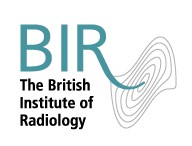
Professor Adrian Dixon has a worldwide reputation as an academic and a radiologist and has published extensively on body and musculoskeletal CT and MR imaging.
He will deliver the BIR Toshiba Mayneord Eponymous Lecture called “Has imaging become too effective?” at UKRC on 7 June 2016 at 13:00.
Read this fascinating interview with him and get a taster of this “not-to-be-missed” presentation.
You will be delivering the BIR Toshiba Lecture at UKRC this June. Your lecture is called “Has imaging become too effective?” Can you give us a “taster” of what you mean by this?
“You should say what you mean!” as the March Hare said in “Alice’s Adventures in Wonderland”.
What do people mean by “effective”? Effectiveness is only an appropriate term if qualified. Modern imaging certainly is effective at increasing the diagnostic confidence about a diagnosis and excluding certain diagnostic possibilities. It has taken a long while to prove that it is effective in saving lives. It has become so effective that, in many conditions, an image can be rendered to make the diagnosis obvious to the man in the street.
And clinicians now tend to refer for imaging without stopping to think! It has also become so effective in demonstrating probably innocuous lesions that the worried well can become even more of a hypochondriac! In some societies this can lead to over usage, excessive radiation exposure and increased costs.
If imaging is “too effective” – is radiology still a worthwhile career choice?
Yes! It is the most fascinating of all medical careers and every day a radiologist should see something that he or she has never quite seen before. The radiologist is the ultimate medical detective and cannot conceivably get bored. Indeed radiologists get reimbursed to solve crossword puzzles on elaborate play stations!
What have been the three biggest challenges for you in your career?
Radiologists have had to learn and relearn their skills at frequent intervals during their careers. Radiology will only survive as a specialty if the radiologist knows more about the images, the technical aspects and the interpretative pitfalls than their clinical colleagues.
Did you ever meet Godfrey Hounsfield (inventor of CT imaging) and what were your memories of him?
 I did indeed meet Sir Godfrey on numerous occasions. His humility and “boffin style” of science greatly appealed. Some of the stories at the numerous events surrounding his memorial service were truly fascinating, including his inability to accept any machine which he could not understand without taking it to bits and then reassembling it!
I did indeed meet Sir Godfrey on numerous occasions. His humility and “boffin style” of science greatly appealed. Some of the stories at the numerous events surrounding his memorial service were truly fascinating, including his inability to accept any machine which he could not understand without taking it to bits and then reassembling it!
Given the financial pressures on healthcare, will the required investment in the latest imaging technology be affordable?
Some of the developments in personalised medicine may be unaffordable. Generic contrast agents will continue to be used in large volumes. The cost of creating “one off” agents may prove unjustifiable.
Why would you encourage someone to join the BIR?
Because of the fun of interdisciplinary discussion and the pride of being a small part of the oldest radiological society!
Does spending more money on equipment mean a better health service?
I passionately believe that prompt access to imaging makes a major contribution to excellent healthcare. But that does not necessarily mean that every hospital has to have every machine at the top of the range. A rolling programme of equipment replacement is an essential part of delivering a high-quality radiological service.
The most difficult thing I’ve dealt with at work is…
An electrical power cut during the middle of a tricky adrenal CT-guided biopsy!
If Wilhelm Roentgen could time travel to Addenbrooke’s hospital, what would he be most impressed with?
The sheer size and the number of staff of the radiology department!
When its 2050, what will we say is the best innovation of the 21st century in healthcare?
Data mining and health statistics.
Who has been the biggest influence on your life? What lessons did that person teach you?
All my previous bosses have influenced my career. I have learnt something from each of them. All of them stimulated me to ask the question “why are we doing things this way”? “Can it be done better”?
My proudest achievement is…
Helping to make the Addenbrooke’s Radiology department one of the most modern in the UK.
What advice would you pass on to your successor?
Never give up, try, try and try again and remember “the more you practice, the luckier you get”.
What is the best part of your job?
That I have been lucky to have had a succession of challenges in the various roles that I have held, all of which have kept me on my toes.
What is the worst part of your job?
Leaving salt of the earth friends as I have moved from role to role.
If you could go back 20 years and meet your former self, what advice would you give yourself?
Do not worry so much – it will all be alright on the night.

Adrian Dixon
What might we be surprised to know about you?
That I support Everton Football Club.
How would you like to be remembered?
For influencing the careers of younger colleagues – hopefully to their benefit!

Professor Dixon will deliver the BIR Toshiba Mayneord Eponymous Lecture called “Has imaging become too effective?” at UKRC on 7 June 2016 at 13:00.
Book your place at UKRC (early bird rate ends 15 April 2016)
![]() Thank you to Toshiba for supporting the BIR Mayneord Eponymous Lecture
Thank you to Toshiba for supporting the BIR Mayneord Eponymous Lecture
